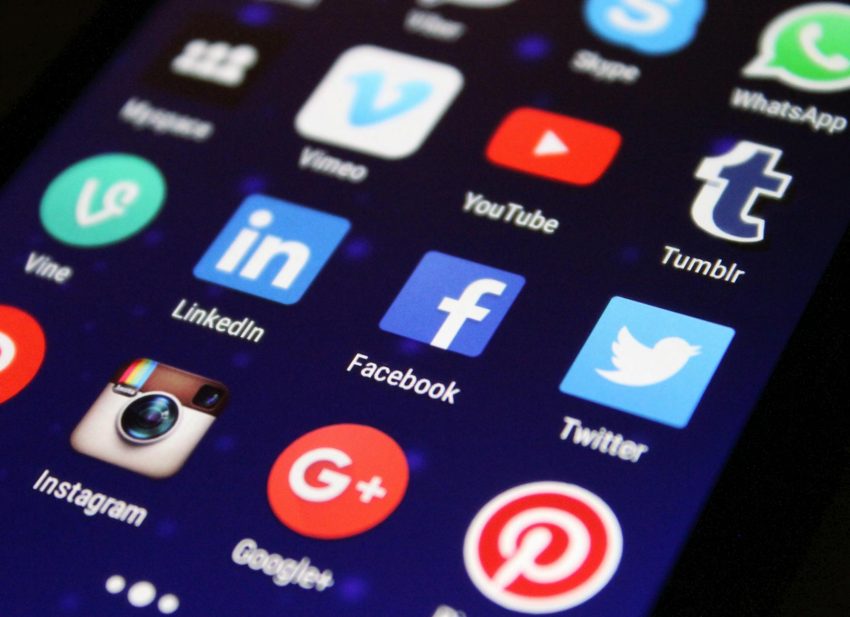The rise of social media has transformed the way we consume information, with platforms like Facebook playing a pivotal role in shaping public discourse. Amidst this digital landscape, the emergence of Facebook Fact-Checkers has sparked a heated debate over the balance between censorship and free speech. While some view fact-checking as a necessary safeguard against misinformation, others argue it resembles a form of thought policing that stifles diverse opinions. As these discussions unfold, it becomes crucial to examine the implications for users and the overall integrity of information shared online, fostering a deeper understanding of the responsibility that comes with digital communication.
The Role of Fact-Checkers in Social Media
In today’s fast-paced digital landscape, Facebook Fact-Checkers play a crucial role in shaping the reliability of information circulating on social media platforms. As rumors, misinformation, and outright fabrications can spread rapidly, these fact-checkers work to assess the accuracy of claims made across various posts and articles. Their primary objective is to uphold the integrity of information while promoting informed dialogue among users.
A significant aspect of the fact-checkers’ role lies in their rigorous process of analysis. They examine content by comparing it against reliable sources, conducting research, and collaborating with industry experts. This thorough examination helps to distinguish between verified facts and misleading narratives. When misleading content is identified, Facebook Fact-Checkers label it as false or partially false, providing users with context that aids in their understanding.
Moreover, transparency is a defining feature of the fact-checking process. By providing users with detailed sources and explanations, fact-checkers empower individuals to form their own opinions based on verified information. This is particularly vital in an era where misinformation can influence public opinion, sway elections, and incite unrest.
Social media platforms also benefit from the involvement of fact-checkers. By keeping a close watch on the content shared within their networks, they help maintain the credibility of the platform itself. As a result, users are more likely to trust the information they encounter, leading to healthier online discussions and interactions.
In summary, the central role of fact-checkers in social media cannot be overstated. They are vital guardians of information integrity, aiming to create a more informed and engaged online community. The impact of their diligent work not only improves the quality of discourse but can significantly reduce the spread of harmful misinformation.

Debate Over Censorship and Free Speech
The rising influence of social media platforms, particularly Facebook, has sparked an intense debate over censorship and free speech. On one side of the argument, advocates for free expression emphasize the importance of open dialogue, warning against what they perceive as the repression of dissenting voices. They argue that the role of Facebook Fact-Checkers in labeling content as false or misleading can lead to the suppression of legitimate opinions, particularly those that challenge mainstream narratives.
Supporters of fact-checking, on the other hand, champion the crucial need to combat misinformation, especially in a digital landscape riddled with fake news and misleading content. They assert that these Facebook Fact-Checkers play a vital role in ensuring the integrity of information that circulates on the platform. According to this perspective, without a mechanism to verify facts, the risk of societal harm increases, as users may fall prey to dangerous ideologies or fraudulent claims.
However, the line between moderation and censorship remains blurred. Critics argue that the algorithms used by social media companies can disproportionately target certain viewpoints, creating a landscape where specific ideologies are favored over others. This raises important questions about fairness and whether these platforms are equipped to handle the complexities of varied political beliefs and cultural perspectives.
As users grapple with this evolving landscape, the implications of censorship versus free speech become increasingly pronounced. For many, the ability to freely share thoughts and opinions is fundamental to democratic societies, yet the responsibility to prevent harm is equally significant. Navigating these waters requires careful consideration, as societies strive to balance the principles of open dialogue against the necessary safeguards against misinformation.
Implications for Users and Information Integrity
The implications for users and information integrity in the context of actions taken by Facebook Fact-Checkers are profound and multifaceted. As social media platforms become a primary source of information for millions of people, the role of fact-checkers is crucial in maintaining the accuracy and reliability of content. When users encounter flagged or censored posts, it raises significant questions about the balance between protecting the public from misinformation and preserving their right to freely express opinions.
Firstly, users are affected by the visibility of accurate versus misleading information. Fact-checking initiatives strive to ensure that sound information prevails, promoting a healthier discourse. However, when misinformation is swiftly labeled or removed, some users may perceive it as a form of censorship. This can lead to distrust towards these platforms, causing individuals to question the motives behind the fact-checkers’ decisions, especially if their personal beliefs or viewpoints are challenged. This creates a potential rift where users may retreat to echo chambers, thereby reducing exposure to diverse perspectives.
Furthermore, the credibility of information is at stake. If users consistently see conflicting messages about what is true or false, their ability to discern accurate information is compromised. This erosion of trust may extend not only to the platforms but to the broader media landscape. Users might become disillusioned, leading to decreased engagement with content that is essential for informed citizenship.
Lastly, the impact on information integrity cannot be understated. When false information is mitigated effectively, it can ultimately contribute to a more informed public. However, if users feel their voices are suppressed, they may become resistant to fact-checking efforts altogether, potentially undermining the very goals those efforts aim to achieve. As the tension between fact-checkers and users continues, both social media platforms and their users must engage in ongoing dialogue about the importance of transparency, accountability, and responsible information sharing to preserve the integrity of content online.
Frequently Asked Questions
What is the role of Facebook fact-checkers, and how do they operate?
Facebook fact-checkers are independent organizations or individuals tasked with verifying claims made on the platform. They assess the validity of information shared in posts by cross-referencing it with credible sources and established facts. Upon review, if content is found to be misleading or false, it may be flagged, resulting in reduced visibility, and warnings may be attached to the post to inform users. This procedure aims to curb misinformation and promote a more informed community, although it sometimes raises concerns about censorship.
What are the criticisms surrounding Facebook’s fact-checking practices?
Critics argue that Facebook’s fact-checking system can resemble a form of censorship, often referred to as ‘thought policing’. Concerns have been raised about the potential bias inherent in the fact-checking process, where certain narratives may be unfairly targeted while others receive less scrutiny. Additionally, skeptics highlight that the quick pace at which information spreads can democratize the dissemination of ideas but also lead to inconsistencies in how content is judged by fact-checkers, leading to questions about accountability and transparency in their operations.
How does Facebook handle user disputes regarding fact-checked content?
When users disagree with a fact-checking ruling on Facebook, they can appeal the decision. This process typically involves submitting a request for a review where users can provide their perspective or additional evidence to support their claim. Facebook then re-evaluates the content, and if the fact-checking designation is upheld, it remains in place. This appeals process attempts to offer a fair opportunity for users to contest decisions that they believe are unjust, but critics note that the overall transparency and efficacy of this mechanism can vary.
